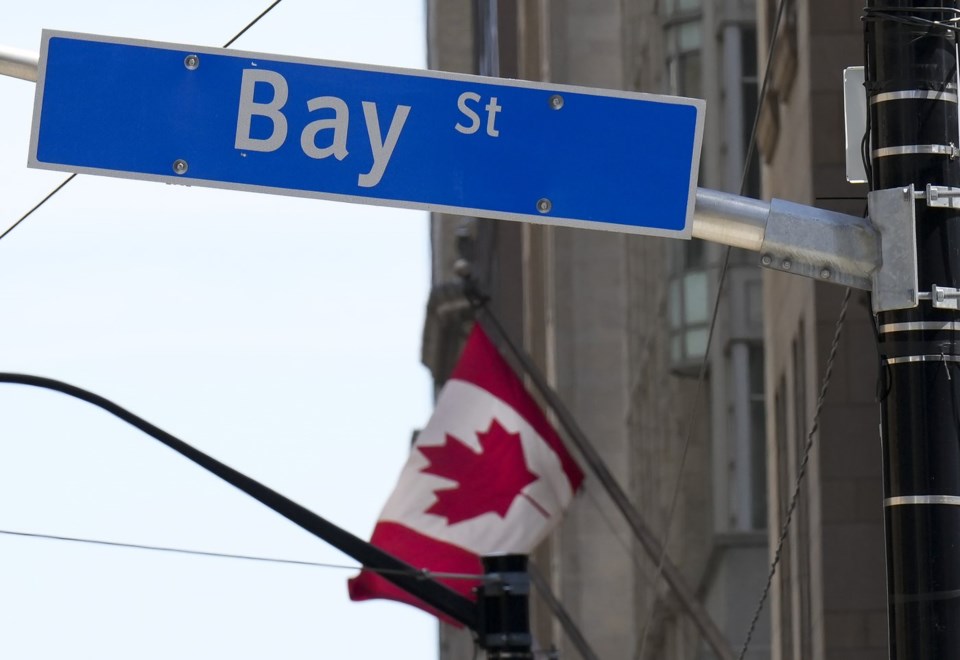TORONTO — Canada's big banks reported year-end financial results this week that showed mixed results as elevated interest rates and a softening economy weighed.
Here's some of what banks said about how things are going and what's ahead in 2025.
Credit
Banks have been putting aside increasing amounts of money for loans that are looking shaky. Going into the quarter, banks had set aside $4.4 billion in total for potential loan losses, up 23 per cent from a year earlier.
But there are signs that the trend is nearing a peak amid falling interest rates.
CIBC actually dropped its provisions by 23 per cent from a year earlier, though other banks reported varying increases. BMO reported a notable jump in money set aside in the quarter, driven especially by business and government loans, but the bank said it thinks the quarter represents a high point for provisions and they should moderate through 2025.
Mortgages
The financial stress on Canadian homeowners has been a big area of focus over concerns that renewals at higher interest rates would lead to a spike in defaults. Banks indicated that there are definitely some borrowers falling behind but that for the most part they're making it work, and that the move toward lower interest rates is helping.
Scotiabank, for example, noted that about 250 households in Vancouver and Toronto were the main source of its rise in impaired loans, while overall its fixed-rate mortgage clients were actually showing a rise in cash in their accounts and delinquencies were down from the previous quarter.
While the picture isn't as bad as some had feared, banks are still expecting it to get a little worse in the months ahead.
Profits
All of the big six banks reported profits that were up in the quarter from last year. Combined, they made $14.69 billion in net income in the fourth quarter, up from $12.1 billion a year earlier.
For the year as a whole, profits also rose for all but TD Bank Group, which is struggling to fix its costly anti-money laundering deficiencies. All combined, the banks made $51.32 billion in profits in 2024, up from $45.42 billion last year.
The higher profits led to several dividend increases, including an eight per cent bump at CIBC, a four per cent increase at RBC and National Bank and three per cent at BMO, while Scotiabank and TD kept their dividends unchanged.
Economic outlook
The banks are all expecting interest rates to continue to fall next year to reduce strain on borrowers and stimulate the economy. The timing of a turnaround is uncertain though, with most chief executives noting that the first half of the year will still be marked by slower growth. RBC chief executive Dave McKay said he's not sure if a turnaround will happen in the first or second half of next year or even push into early 2026.
TD was notably quieter on economic forecasts, especially its own. The bank suspended its key financial targets for 2025 as it said it would be challenging for it to generate earnings growth next year.
Politics
The threat of tariffs and the uncertainty around the incoming Donald Trump administration in the U.S. is also clouding outlooks for the year ahead. McKay said it was important not to overreact to the threats, and that he expected politicians to find ways to address the perceived border issues. BMO chief executive Darryl White said there are risks around potential protectionist measures, but that the clients he's speaking to are bullish on the incoming administration.
CIBC's Victor Dodig said there is a lot of geopolitical fluidity going on, including an evolving relationship with the U.S., so Canada should focus on what it can control and what it can do to boost GDP growth. He said that includes improving free trade within Canada, providing incentives for entrepreneurs, and regulations that will encourage growth.
This report by The Canadian Press was first published Dec. 6, 2024.
Ian Bickis, The Canadian Press




